In some ways we were an unlikely partnership, Charlie Bird and me.
Two journalists 13 years apart in age. Different backgrounds. Different interests. Different skill sets. And different motivations.
I was a specialist in economics. Charlie was a specialist in...
Well, I am still not sure, after all these years, how to define what Charlie's specialism was.
My first thought was to say, politics. After all he was RTÉ’s main man, outside of the Oireachtas, reporting about all the big political stories for decades.
But then I thought about the many international stories, major ones, that he covered, and none of which had anything to do with domestic politics.
The release of Nelson Mandela in South Africa, the 11 September attacks in New York in 2001, the Indian Ocean Tsunami on St Stephen's Day in 2004, the 2010 earthquake in Haiti, wars, famines, and much much more.
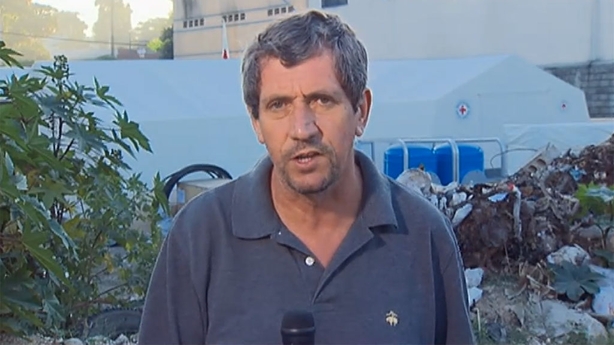
Wherever there was a big news story anywhere in the world Charlie Bird was there.
Yet it wasn’t just politics and international stuff. He did campaigning journalism too.
There was a major award-winning series about road safety in 2006 that he did with RTÉ’s Dympna Moroney and Samantha Libreri.
And who is ever going to forget his never-ending support for the families of the victims of the 1981 Stardust tragedy in which 48 young people lost their lives? That was a campaign Charlie Bird never let go of, right up to the day of his death last week.
Then there was investigative journalism, which is where I got dragged into his orbit.
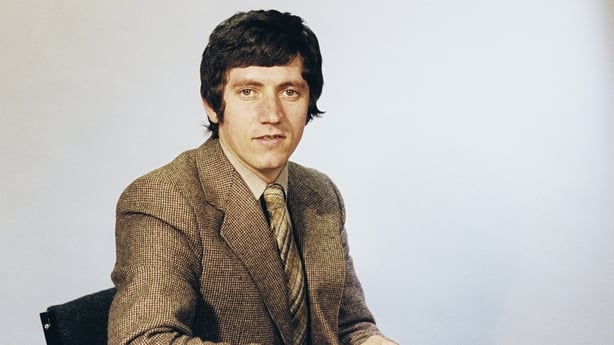
It started for me on a morning in January 1998 when "a trade union source" handed Charlie a scrappy piece of paper. It contained some hastily scribbled account numbers and amounts in National Irish Bank. He told Charlie it was the key to a major scandal if it could be cracked open.
However, it was all about banking and finance, technical stuff that was hard to follow. RTÉ’s Director of News Ed Mulhall said he should team up with me to pursue the story.
I was barely in the door of the newsroom that morning when Charlie came to me in his trademark urgent fashion and said "I need to talk to you. Let’s go for a coffee".
And that was it.
Next thing I knew I was being swept along by the force of his energy, his doggedness, his relentlessness, his drive to deliver, and his determination to break a major news story that would change the regulation of banking practices in this country forever.
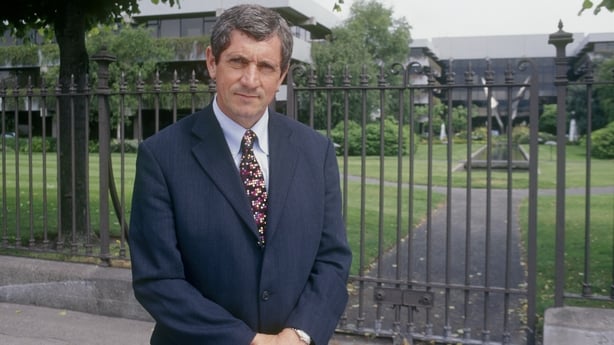
Neither of us could have known that morning in January 1998 that our work partnership and association together was going to last for years.
Charlie himself described his own approach as being like a dog with a bone. And that is so true. He never gave up on a story.
Ever.
My approach to stories was different to his. Some might have described me as perhaps a little more reflective, more analytical, and probably a little less hurried than Charlie was.
So, to some extent, as a pairing, we were a little like Jack Sprat and his wife in that very old nursery rhyme. You know the one - "Jack Sprat could eat no fat. His wife could eat no lean. So, between them both, they killed a goat, and licked their dishes clean."
My point is that Charlie had major qualities and attributes that I didn’t have, while I had some qualities and skills that he didn’t have. Those differences were complementary, and I think that is why we became a very good investigative team.
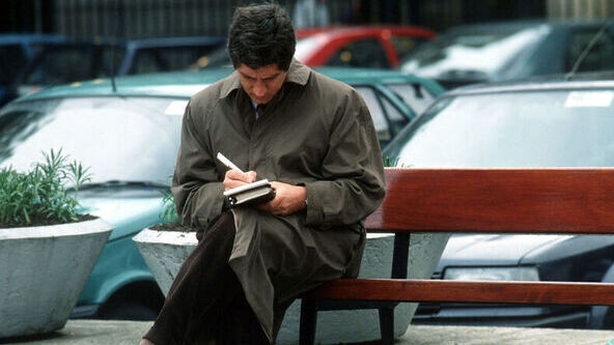
There is an amazing rush of adrenaline that a person gets when they break a big and important story on air. Charlie Bird had already experienced that feeling a lot before I ever worked with him. He loved it. It was part of what drove him.
The buzz that a journalist gets from a major news story is a reward by itself. It is a feeling that you have done something that matters. That you have delivered a story that demands a significant reaction. That your work has moved the dial.
Sometimes that’s almost better than any payment.
At that stage in 1998 I had not spent as many years chasing down news stories and getting them on air as Charlie had. I hadn’t tasted the power of that adrenaline rush to the same extent as he had. I wasn’t hooked yet. But he definitely was. And he was about to teach me what being relentless about a news story really meant and required.
It was hard to stand up our story. We somehow had to track down banking "insiders" – people that might be willing to risk their banking careers by telling us how their employer went about the dirty business of setting up and operating a tax evasion scheme.
And it wasn’t going to be enough to find people willing to talk to us. We wanted them to give us documents too. Lots and lots of documents.
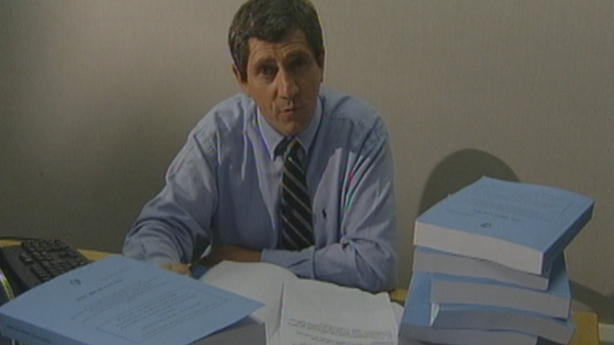
We knew from the beginning that if we were going to tell the public that one of the biggest and most popular banks in the country was deliberately and determinedly breaking the law, and helping their own customers to rip-off the taxpayer, then we were likely to have to go to court to defend our story.
If we didn’t have physical documents to prove what we were about to say, we would have no chance in court and RTÉ would never run the story.
National Irish Bank masterminded a highly illicit scheme. They transferred undeclared customer deposits into numbered accounts that the Revenue Commissioners would never find.
They connived in a devious cover-up, and they profited from it.
My focus in pursuing this story was always about the details.
Trying to understand the scheme, technical details, following the money, getting to the bottom of the cover up and so on.
Charlie’s antennae were primarily focussed on people. Who would talk to him? How could he get them to trust him? Could he convince them to take risks? Would they be able to give him information and documentation that he could barely understand himself? Could he get them to stick with him, through thick and thin, for as long as it would take to win the two High Court and two Supreme Court cases that in the end, we had to win in order to defend our journalism.
But that was part of Charlie’s gift. The way he related to people.
The public trusted Charlie Bird. He never hid weaknesses or mistakes on air. He wore authenticity on his sleeve. Ordinary people considered him as one of their own and they liked him for that. They saw honesty and integrity in him.
He spoke so many times about having failed his Inter Cert. About never having done his Leaving Cert at school. He described how he used to carry a dictionary in his pocket when he first got a job in the newsroom so he could check the meaning of words and how to spell them.
He also talked about having been advised by a senior and experienced presenter to change his broadcast name to Charles Bird because Charles would carry more gravitas than Charlie.
But he wouldn’t play that game. He wasn’t going to fake gravitas. If Charlie Bird was ever to have gravitas he was prepared to earn it the hard way. And that is exactly what he did.
I have worked with many people over the past forty years in lots of different jobs. But I don’t think I have worked closely with anybody that was as driven as Charlie Bird was.
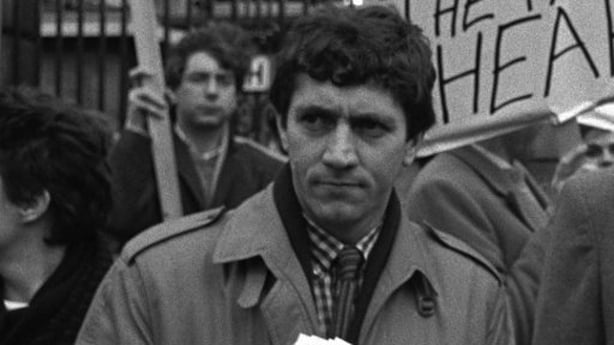
He worked so hard to achieve what he achieved in his career. It didn’t matter what time it was, or what day of the week. It was always journalism first with Charlie Bird.
There was nobody like him. It is no exaggeration to say that he would do anything, go anywhere, and meet anybody, if that is what the job required. That’s just the way he was wired. I saw that in action, up close, throughout the years that I worked with him on our investigations in RTE.
No doubt that very high level of tenacity, trustworthiness, and determination to deliver a story which he so clearly displayed throughout his career were key reasons why it was him that the IRA picked to be their sole contact person in the years leading up to the Northern Ireland Peace Process.
Charlie was very, very careful about his contacts and phone numbers. He kept his contacts to himself and guarded them with jealousy.
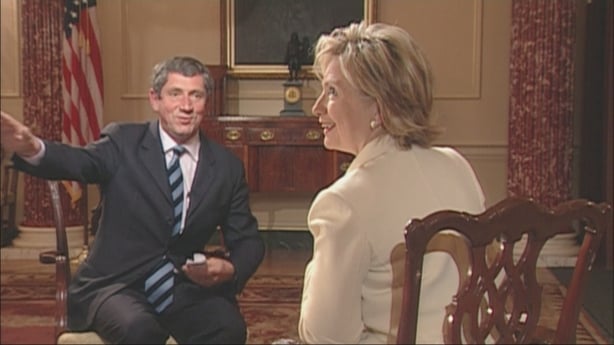
For instance, I never got to know the identity of his so-called "trade union source" who handed him the scribbled sheet of paper that started the whole ball rolling for us in the first place.
I did speak to the person who originally scribbled down those numbers from a National Irish Bank computer screen before giving them to the trade union source.
But I never got to know who I was speaking to. Charlie had rung that person because I needed key answers to questions that he couldn’t follow. He handed the phone to me only after he himself dialled the person.
The same thing was happening with the man we called "the duffle-bag banker" – a key source who provided some of the documentation that eventually enabled us to blow the lid on the banking scandal.
In fact, the duffle-bag banker eventually tired of Charlie operating as a go-between for technical questions and answers and arranged to meet the two of us together in a hotel in Galway. By that stage he had also provided us with cast iron proof that the National Irish Bank was systematically stealing money from its own customers’ accounts to boost its profits.
But even though I met this man more than once I never got his phone number. He was Charlie’s contact, and he would stay Charlie’s contact alone, because that is how Charlie thought he could best protect him. The fewer people who knew who we were talking to and how they could be contacted the safer they would be.
My friend Charlie was a special journalist. He was gifted. He was tenacious. He was energetic. He was honest. He was trustworthy. And he was loyal.
I know how lucky I am to have worked closely with him during my career. I will miss him very much.







